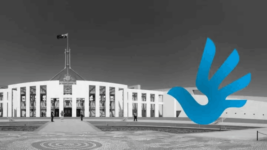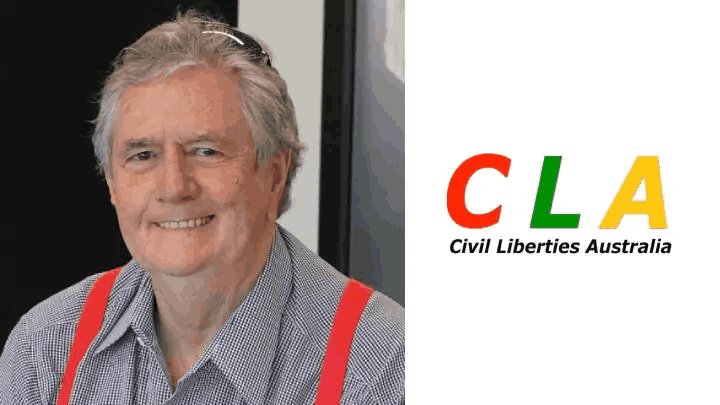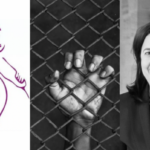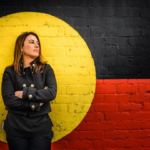Federal Human Rights Protections Could Halt Our Descent Towards Totalitarianism

“A Human Rights Act is Australia’s absent foundational pillar, our missing link,” Civil Liberties Australia CEO Bill Rowlings makes clear. “And its absence affects every citizen, because we don’t know precisely where we stand in relation to our government.”
Indeed, CLA has been meeting with various parties, including politicians, since 2019 to ensure that once federal Labor took the reins again, a HRA would be on its agenda.
With the Australian Human Rights Commission releasing its position paper on such legislation in March, which was followed a fortnight later by attorney general Mark Dreyfus convening an inquiry into potentially enacting such laws, rights protections at the federal level now appear within sight.
Our nation is the only liberal democracy on the planet without national laws enshrining basic rights. And while many were unaware of this when CLA started campaigning, the pandemic and its accompanying controversies, served to awaken most Australians to their lack of protections.
Australia has ratified seven core international human rights treaties, which means it’s agreed to honour these values globally. Yet, without having passed laws to reflect this domestically, encroachments upon and violations of rights have become the norm in our society.
And after a decade of Coalition lawmaking that consistently prioritised security and surveillance over any regard to people’s basic freedoms and liberties, the Albanese government has inherited an increasingly authoritarian polity, and a HRA could go a long way to restoring democratic values.

Sweeping up post-violations
“The rule of law, the rights and responsibilities of citizens clearly legislated, a properly functioning and noncorrupt parliament, executive government and federal bureaucracy, just courts and responsible police” are some of the benefits that Rowlings outlines a HRA would result in.
And with all these institutions bound to this “ethical infrastructure”, whether that be when enforcing the law or in drafting new ones, he considers people before profit would become par for the course, especially now the National Anti-Corruption Commission can condemn those who cross the line.
In its submission to the Parliamentary Joint Committee on Human Rights’ Inquiry into Australia’s Human Rights Framework, the CLA points out that over the last decade the number of Commonwealth Royal Commissions into various sectors has tripled.
Yet, if institutions had to adhere to enforceable rights standards, the nation would likely not have to delve into the dark corner of aged care facilities, attempt to stamp out the torture of children in youth prisons or consider the atrocities of the Robodebt scheme long after the harm’s been done.
“But what we don’t have is a federal Human Rights Act – otherwise known as a bill of rights – spelling out our entitlements and our duties,” Rowlings told Sydney Criminal Lawyers, “like other comparable nations, such as Canada, the USA, the UK and New Zealand all have.”
Governing for the people, not over them
According to Rowlings, any HRA that Labor legislates must be based on “no rights without remedy”, which means that a process be established that permits all citizens and residents to seek legal recourse when any of their rights enshrined in law have been breached.
“With that concept in place, if bloody-minded federal bureaucrats refused you what you believe you were entitled to, you could take the matter to conciliation by the AHRC or for a legal ruling by, say, a small-claims appeal tribunal, like the old AAT system,” the civil liberties advocate stressed.
This should prick up the ears of many who felt their rights were breached during the response to COVID: countless people scrambled to the courts to challenge certain measures they considered infringed their rights only to find that the Constitution upholds a handful of mainly obscure rights.
Rowlings pointed to one breach of basic rights, which many who weren’t necessarily opposed to the overall pandemic response have raised as an undeniable violation, and that was preventing people from leaving the country, especially when this denial involved foreign nationals.
“You would have had someone and somewhere to go to argue your point of view and so make a quick and fair final decision, almost certainly in your favour in that situation,” Rowlings asserted if a HRA was in place prior to COVID. “But that was impossible to achieve during the pandemic.”
Another key matter of outrage that could have been avoided if rights were protected is Robodebt, Rowlings continued, adding that despite thousands complaining and the tragic outcomes publicly aired, the flawed system dragged on for years because no mechanism was in place to rein it in.
Power to the people
The Rudd government held a HRA inquiry but then determined not to proceed with one in 2010. The thirteen years since have seen brutal offshore detention, the passing of dozens of invasive national security laws, press raids, whistleblower persecutions and a decline in government accountability.
And many are dubious about the HRA inquiry, as Labor pledged to hold one into war powers, which considered whether the decision to enter a foreign war might be one that engages the entire parliament and not just the National Security Committee: the PM and eight other ministers.
However, in this case, defence minister Richard Marles and foreign minister Penny Wong had already publicly asserted that the war powers amendment be denied long before the committee had even reported back on its findings into the issue.
“Once politicians of either stripe – Labor or Liberal National – get their shiny suit bums on the benches in Canberra, they think differently from average Australians,” Rowlings explained, adding that pollies “believe they should hold all the power”, despite being elected to represent the people.
An independent senator, whom Rowlings didn’t name, told CLA much the same this month, outlining that those in the major parties prefer to keep the power in their hands, rather than relinquish it to the people, which is a common explanation given for our dearth in federal rights protections as well.
Yet some states and territories have been enacting their own HRAs over recent decades. And the question was put to Rowlings as to why it isn’t sufficient to leave it up to those jurisdictions to protect basic rights, considering Canberra has always been reluctant to progress such a bill.
And the rights expert explained that the laws in the ACT, Victoria, Queensland, and possibly soon in NSW, only serve to uphold rights related to state matters, which means those who’ve suffered violations in regard to borders, social security, and data privacy still won’t have a leg to stand on.
“People who don’t believe in a HRA, or that ultimate power over war decisions must rest with citizens, are the types who would be most comfortable in turning Australia into a totalitarian government run by the elite,” the CLA CEO said in conclusion.
“More power to the people is a better path than more power to politicians, most people believe.”







